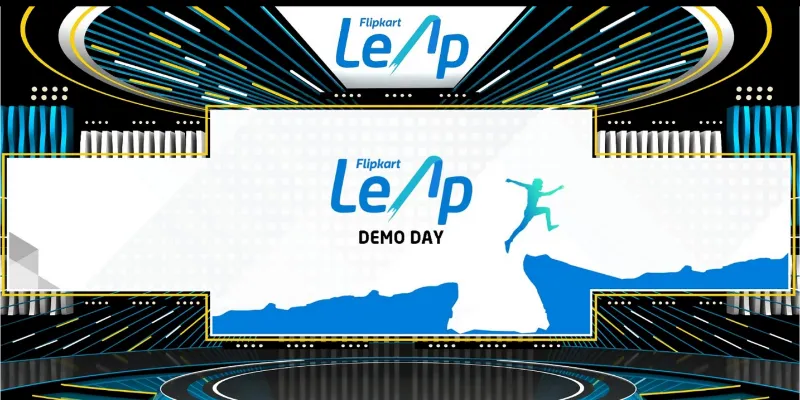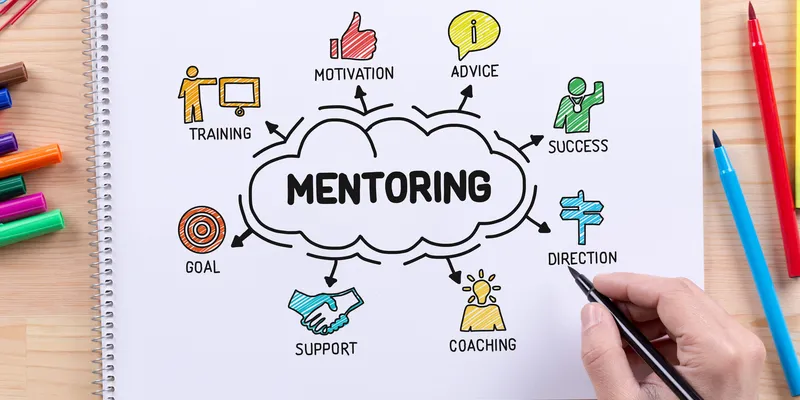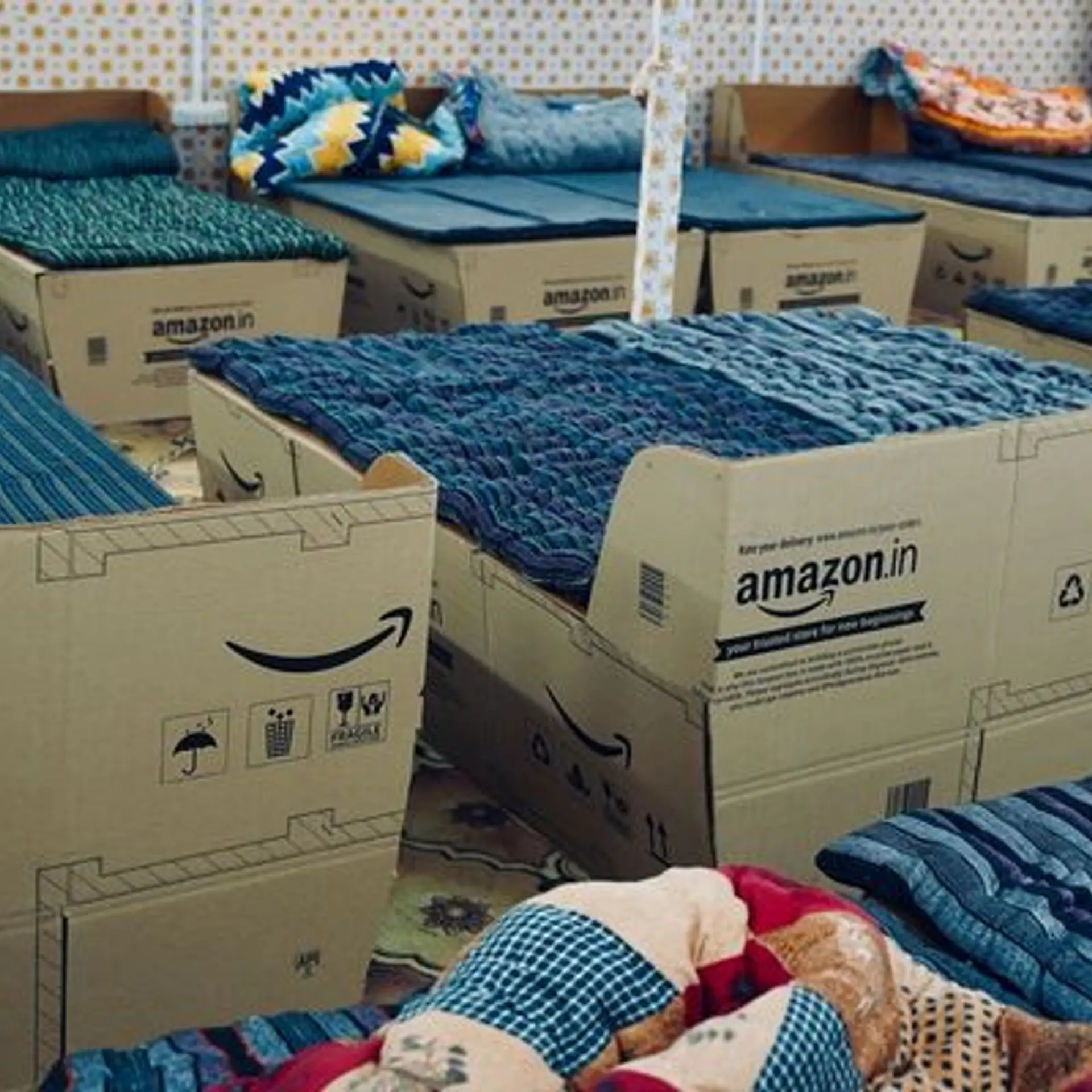Inside Flipkart’s Leap programme: the experience, learnings, and the path ahead
As part of Flipkart's startup accelerator programme, chosen startups were given access to world-class technical and business mentorship, tools, technology, and business support services, as well as connect with relevant investors in the industry.
In August 2020, Flipkart announced its startup accelerator programme Flipkart Leap with the aim of giving back to the ecosystem.
And just a few months later, in January 2021, it shortlisted eight startups from over 900 applications it had received. The selected startups — ANS Commerce, Entropik Tech, Fashinza, Gully Network, Piggy, Tagbox Solutions, Unbox Robotics, and Fasal — graduated earlier this month after a 16-week mentorship programme. They were also recipients of a $25,000 equity-free grant.
“From day one, we were committed to give the chosen startups anything possible to accelerate their journey,” says Jeyandran Venugopal, Chief Product and Technology Officer (CPTO) at Flipkart in a conversation with YourStory.
The Demo Day, held on July 8, had these startups showcase their solutions to 900+ attendees from across the globe, including investors and industry leaders from 70+ organisations, and varied talent from 280+businesses — making it one of the most successful Demo Days in the country in recent times. It is no surprise that the chosen startups represented areas strategic to the ecommerce giant — fintech, agritech, retail tech and AI.

With over 350 million registered users, and lakhs of sellers on its platform, the ecommerce marketplace is an ecosystem of its own. However, with the accelerator programme, it has a larger vision. As Jeyandran says,
“Our goal is very clear — we want to strongly participate in the narrative of Digital India and Make in India. We want to be the ecosystem enabler uplifting the larger narrative of Digital India, not necessarily related to themes of digital commerce.”
And, the criteria for selection also demanded a focus on digital startups that were using technology as a key lever to create disruptive transformation in their segments.
360-degree support
Besides mentoring, the accelerator programme focussed on product ideation, product market fit, and bringing in subject matter experts across business and technology domains, and more.
Naren Ravula, VP, Product Strategy and Deployment - Flipkart, says, “The strong point of our programme was mapping the right mentors to the right startups. Besides, we give them access to Flipkart’s ecosystem of employees, customers, and sellers.”
This partnership between the startups and Flipkart saw many of them jointly undertaking certain pilot projects or some proof of concepts (PoCs).

Take Unbox Robotics for instance. The startup, which had developed an AI-powered parcel sorting robotic system, was supported in its effort to build a robotic solution suited to a vertical structure.
Tagbox, a supply-chain startup, with its expertise in Internet of Things (IoT), helped Flipkart in further improving its supply chain dynamic in certain segments, and brought in thousands of dollars in savings.
Many more examples of collaboration emerged from the accelerator programme, where solutions were created not just for Flipkart but also for the larger ecosystem. While some of the pilot projects had certain commercial applicability, some others were rolled out to test how well its product or solution would perform in real market conditions.
According to Jeyandran though, “The primary goal was always mentoring and acceleration of these startups.”
Insights to gain
Flipkart is often known as the poster child of Indian startups. And the cohort of startups under its Leap programme stands to gain tremendously from the wealth of experience it has accumulated over the years.
Naren says, “It (the programme) got off to a good start, and now we are looking at how to scale.”
Thanks to its scale of operations, the ecommerce marketplace has a vast repository of knowledge on consumer behaviour and these insights proved invaluable to the selected startups.
Shailendra Tiwari, Founder, Fasal says, “We landed up with Flipkart Leap when we were struggling with our hiring and other aspects. We have been able to make a lot of strides in that area through the programme. We had access to mentors who helped us understand our business and how we can navigate it better.”

Similarly, Ajay Nain, Founder, Gully Network, says “Master sessions on scaling, storytelling and product-market fit were really helpful. Validation of the business model is the key takeaway for us from the Flipkart Leap programme. We also got to explore B2B synergies with the Flipkart Group, which will be beneficial for our business growth.”
According to Naren, the programme aligned the right internal mentors to the startups even as it worked with external evaluators to shortlist the startups.
“The quality of our mentorship made a difference especially since the COVID-19 pandemic had brought in a lot of uncertainty. Having the right mentors to navigate through the crisis was very impactful,” he remarks.
Even though the programme was only just being introduced, the interest and attention Flipkart Leap garnered was really high. And fascinatingly, the startups were not the only ones gaining from the programme. Through this entire engagement, Flipkart was also able to rally together all its stakeholders — both internal and external.
Some of the graduating startups are now in preliminary talks with potential investors following the programme.
Future plans
Being the third largest startup ecosystem in the world, India has no dearth of accelerator programmes, but Flipkart wanted to create a differentiation.
“The outcome of the programme has given us a lot of confidence that we have got the fundamentals right, and the structure we have instilled largely works. This encourages us to scale up further,” says Jeyandran.
“We entered the programme with the idea to enrich the overall digital ecosystem, which is where we have built a community,” he adds.
He emphasises that there was no pressure, either from the startups or the company, to look at any immediate outcome from the partnership.
“The programme design is very aligned to the need of the startup, and any tangible benefit is good but that is not the core metric for us,” he adds.
Both Jeyandran and Naren vouch that the entire journey has been extremely fulfilling for the company as a whole, and there was value flow both ways.
Naren says, “We wanted to champion innovation and entrepreneurship in the country, and this was one opportunity for us to give back to the community.”
Flipkart is now getting ready for its second cohort, and the learnings from the first edition is only going to make it better.
“Our aspiration and ambition for the second cohort is only going to be bigger,” remarks Jeyandran.
Technology and digital transformation have been the key themes throughout 2020 and 2021. Tech innovation and nurturing disruptive ideas is expected to be leading factors in the new normal. And this is where Flipkart Leap expects to utilise its reach — to nurture and boost the ideas that have the potential to be a game changer in the retail and technology space.
Edited by Anju Narayanan











